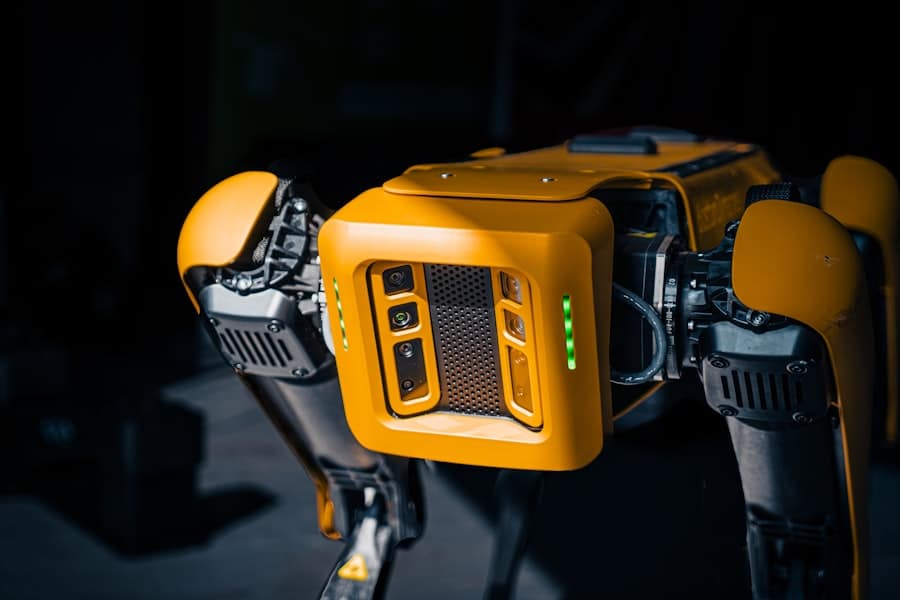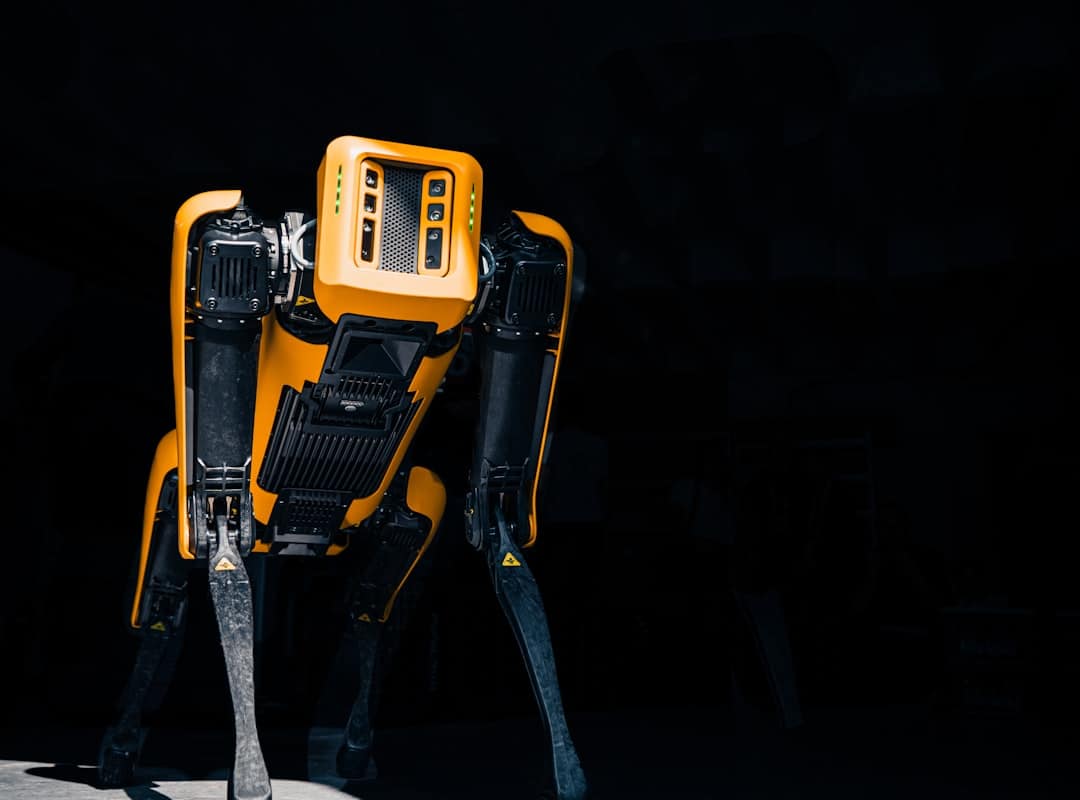Predictive technology has emerged as a transformative force across various sectors, including healthcare, finance, and marketing. At its core, predictive technology leverages data analytics, machine learning, and artificial intelligence to forecast future events based on historical data patterns.
By analyzing vast amounts of data, predictive technology can identify risk factors and potential triggers for mental health issues, enabling healthcare providers to intervene before a crisis escalates. The integration of predictive technology into mental health care is not merely a theoretical concept; it is becoming a practical reality. With the increasing prevalence of mental health disorders globally, the need for innovative solutions has never been more pressing.
According to the World Health Organization, one in four individuals will experience a mental health issue at some point in their lives. This staggering statistic underscores the urgency for effective crisis management strategies. Predictive technology offers a promising avenue for enhancing the identification and management of mental health crises, potentially saving lives and improving overall well-being.
Key Takeaways
- Predictive technology has the potential to revolutionize mental health crisis management by identifying and addressing issues before they escalate.
- Understanding mental health crises is crucial for developing effective predictive technology solutions that can accurately identify and intervene in crisis situations.
- Predictive technology can help in early identification of mental health crises by analyzing patterns and warning signs, enabling timely intervention and support.
- Challenges and limitations of predictive technology in managing mental health crises include issues of accuracy, privacy, and the potential for misinterpretation of data.
- Ethical considerations in using predictive technology for mental health include concerns about privacy, consent, and the potential for bias in data analysis.
Understanding Mental Health Crises
Mental health crises can manifest in various forms, ranging from acute episodes of anxiety and depression to severe conditions such as suicidal ideation or psychotic breaks. These crises often arise unexpectedly and can be triggered by a multitude of factors, including stress, trauma, substance abuse, or underlying mental health disorders. Understanding the complexity of these crises is essential for developing effective interventions.
For instance, an individual with a history of depression may experience a crisis following a significant life event, such as job loss or the death of a loved one. The impact of mental health crises extends beyond the individual; they can strain families, communities, and healthcare systems. The National Alliance on Mental Illness (NAMI) reports that nearly 50% of individuals with mental illness do not receive treatment, often due to stigma or lack of access to care.
This gap in treatment can exacerbate crises, leading to emergency room visits or even incarceration. Recognizing the signs of a mental health crisis is crucial for timely intervention. Symptoms may include drastic changes in behavior, withdrawal from social interactions, or expressions of hopelessness.
Understanding these indicators can empower friends, family members, and professionals to act swiftly and compassionately.
The Potential of Predictive Tech in Identifying Mental Health Crises

Predictive technology holds immense potential for identifying mental health crises before they escalate into more severe situations. By utilizing algorithms that analyze data from various sources—such as electronic health records, social media activity, and wearable devices—healthcare providers can gain insights into an individual’s mental state. For example, researchers have developed models that analyze patterns in language used on social media platforms to detect signs of depression or anxiety.
These models can flag concerning posts that may indicate an individual is at risk of a crisis. Moreover, predictive analytics can enhance the monitoring of patients with known mental health conditions. By integrating data from wearable devices that track physiological indicators such as heart rate variability or sleep patterns, clinicians can identify deviations from an individual’s baseline behavior.
A sudden increase in anxiety levels or disrupted sleep patterns may signal an impending crisis, prompting preemptive interventions. This proactive approach not only improves patient outcomes but also reduces the burden on emergency services and healthcare facilities.
Challenges and Limitations of Predictive Technology in Managing Mental Health Crises
Despite its promise, the application of predictive technology in mental health care is fraught with challenges and limitations. One significant hurdle is the quality and availability of data. Predictive models rely on large datasets to identify patterns accurately; however, many individuals with mental health issues do not seek treatment or may not have their conditions documented in electronic health records.
This lack of comprehensive data can lead to biased predictions and ineffective interventions. Additionally, the dynamic nature of mental health makes it difficult to create one-size-fits-all predictive models. Mental health conditions are influenced by a myriad of factors—biological, psychological, and social—that can vary widely among individuals.
A model that works well for one demographic may not be applicable to another. Furthermore, the rapid evolution of social media and digital communication means that language and behavioral indicators can change quickly, necessitating continuous updates to predictive algorithms.
Ethical Considerations in Using Predictive Technology for Mental Health
The use of predictive technology in mental health raises several ethical considerations that must be addressed to ensure responsible implementation. One primary concern is privacy; individuals may be uncomfortable with their data being analyzed without their explicit consent. The collection and use of personal data for predictive purposes must adhere to strict ethical guidelines that prioritize patient autonomy and confidentiality.
Moreover, there is the risk of stigmatization associated with predictive analytics. If individuals are flagged as being at risk for a mental health crisis based on algorithmic predictions, they may face discrimination or negative labeling from peers or employers. This potential for harm underscores the importance of transparency in how predictive models are developed and used.
Stakeholders must engage in open dialogues about the implications of predictive technology and involve individuals with lived experiences in shaping policies that govern its use.
Integrating Predictive Tech with Traditional Mental Health Care

For predictive technology to be effective in managing mental health crises, it must be integrated seamlessly with traditional mental health care practices. This integration requires collaboration between technologists and mental health professionals to ensure that predictive tools complement existing therapeutic approaches rather than replace them. For instance, clinicians can use insights gained from predictive analytics to inform treatment plans and tailor interventions to meet individual needs.
Training mental health professionals to interpret and utilize predictive data is also crucial. Clinicians must understand how to incorporate these insights into their practice while maintaining a human-centered approach to care. This means balancing data-driven decision-making with empathy and understanding—qualities that are essential in therapeutic relationships.
By fostering collaboration between technology developers and mental health practitioners, the healthcare system can create a more holistic approach to crisis management.
Future Developments and Research in Predictive Technology for Mental Health
The future of predictive technology in mental health is ripe with possibilities as research continues to advance in this field. Ongoing studies are exploring the use of artificial intelligence to develop more sophisticated algorithms capable of predicting crises with greater accuracy. For example, researchers are investigating machine learning techniques that analyze not only textual data but also audio and visual cues from therapy sessions or phone calls to detect emotional distress.
Furthermore, there is growing interest in developing community-based predictive models that consider social determinants of health—such as socioeconomic status, access to care, and community support systems—in predicting mental health crises.
The Role of Predictive Tech in Improving Mental Health Crisis Management
As we navigate the complexities of mental health crises in an increasingly digital world, predictive technology stands out as a beacon of hope for improving crisis management strategies. By harnessing the power of data analytics and machine learning, we can identify individuals at risk more effectively and intervene before crises escalate into emergencies. However, this potential must be tempered with careful consideration of ethical implications and challenges inherent in data collection and analysis.
The integration of predictive technology with traditional mental health care practices offers a pathway toward more personalized and proactive interventions. As research continues to evolve, we can anticipate innovative developments that will further enhance our understanding of mental health crises and improve outcomes for those affected. Ultimately, the responsible application of predictive technology has the potential to revolutionize how we approach mental health care, fostering a system that prioritizes prevention and early intervention while respecting individual rights and dignity.
In the evolving landscape of mental health management, predictive technology plays a crucial role in anticipating and mitigating crises before they escalate. This proactive approach is akin to the advancements seen in other tech-driven fields, such as scheduling software, which optimizes efficiency and productivity. For instance, the article on the top 10 best scheduling software for 2023 highlights how technology can streamline processes and improve outcomes. Similarly, predictive tech in mental health can help streamline interventions, ensuring timely support and reducing the burden on healthcare systems. By leveraging data and analytics, both fields demonstrate the transformative power of technology in enhancing human well-being and operational efficiency.
FAQs
What is predictive technology in the context of mental health crises?
Predictive technology in the context of mental health crises refers to the use of data analysis and machine learning algorithms to predict and prevent mental health crises before they occur. This technology can analyze various data points such as social media activity, sleep patterns, and physical activity to identify potential warning signs of a mental health crisis.
How does predictive technology help in managing mental health crises?
Predictive technology helps in managing mental health crises by identifying individuals who may be at risk of experiencing a crisis and providing early intervention and support. By analyzing patterns and trends in an individual’s behavior and mental health indicators, predictive technology can alert healthcare providers and caregivers to potential risks, allowing for timely intervention and support.
What are the potential benefits of using predictive technology in managing mental health crises?
The potential benefits of using predictive technology in managing mental health crises include early intervention, personalized care, and improved outcomes for individuals experiencing mental health challenges. By identifying and addressing potential crises before they escalate, predictive technology can help reduce the severity and impact of mental health crises.
What are the potential limitations or concerns associated with predictive technology in managing mental health crises?
Some potential limitations and concerns associated with predictive technology in managing mental health crises include privacy concerns, data security risks, and the potential for algorithmic bias. It is important to carefully consider ethical and privacy implications when implementing predictive technology in mental health care and to ensure that individuals’ rights and autonomy are respected.
How is predictive technology integrated into mental health care systems?
Predictive technology is integrated into mental health care systems through the use of specialized software and algorithms that can analyze and interpret data related to individuals’ mental health and well-being. This technology can be used in conjunction with existing mental health care practices to provide additional support and intervention for individuals at risk of experiencing a crisis.

